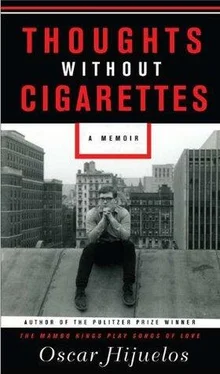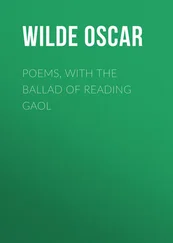“Like what?” I asked.
“Like letting me fuck her,” he said, pointing her way.
I was holding a beer mug at the moment, and if not for the fact that I would have been kicked out of the academy for good, I would have punched him in the face with it.

But my dealings with him were the worst of that stay, aside from certain moments of the ghastly, unbridled snobbery I occasionally encountered. After my years at TDI, never a hotbed of intellectual activity, and with my plebeian education (“City College? How quaint”), I was unaccustomed to academic speak and the incredibly long-winded conversations I’d overhear at the dining room tables. Though I enjoyed attending the academy lectures, in which one could get up and leave, I found that certain people were best avoided, and, along the way, I may have offended, without intending to, more than a few of them.
Still, in those days I made the acquaintance of a photographer in her mid-thirties named Barbara Beany, an expat who had married an Italian, whose roundish and expressive face always seemed swollen, her cheeks of a deep rouge coloration: Working for the academy, she had sought me out, and while I hadn’t been aware of just why, I always felt an inexplicable kinship with her, as if I knew much more about her than was possible. But I could never put my finger on it, until I learned that she suffered from bad kidneys. A sunny personality, despite her difficulties, we’d often stroll the academy’s back gardens, talking about her life in Italy and my book, which seemed to have touched her. Ever so quiet and gentle in her manner, I realize now that she, indeed, knew that her days were numbered.
Leon Krier and I were friendly enough that he invited me to London for New Year’s. My first autumn in Italy, we’d palled around quite a bit in Rome. On the evening of one of that city’s greatest (and rare) snowstorms, we had driven down to the Vatican, its piazza abandoned, and gone hiking in a state of elation through its threefoot-high drifts, talking about the monumentality of its architecture (in fact, we’d drive around Rome to obscure hill towns discussing nothing else). We’d make countryside excursions, his wife, Rita Wolfe, a painter, often joining us. But as I said before, we mainly caroused about for books. He’d invited me to London out of pure kindness, and though I had come down with an awful flu (my annual friend), I kept my assignation, having booked tickets on Ethiopian Airlines, the cheapest fare I could find. The day I left for London, I was on my way out to Fiumicino on a bus when traffic completely stopped on the highway. Suddenly, dozens of police cars, sirens blaring, went whizzing by, followed by ambulances, then military vehicles. As we waited, someone listening to a portable radio mentioned that some kind of attack had taken place in the airport. A few hours later when we were allowed to proceed, I arrived at a chaotic scene — hundreds of people and airline employees wandering about in a daze (so it seemed to me). At one side of the terminal, near the El Al and TWA counters, large paneled screens were being wheeled into place, while airport workers in janitorial coveralls stood on ladders, steam-blasting blood and other matter off the bullet-pocked walls. Even then I had no clear idea of what had happened, nor would I until, after an endless wait, my late-morning flight made it into London’s Heathrow, sometime after ten that night, when, as I recall, tanks were lining the airport route. Only when I made it over to Leon’s place at Belsize Park and turned on the “telly” did I learn that I’d witnessed the aftermath of the terrorist attack known as the Rome Massacre.

Mainly I enjoyed myself: I learned to play something that vaguely resembled tennis on a court outside the academy library. I’d whack at balls with an ebullient kitchen helper named Rocco, later the operator of an ice cream truck in Rome—“ Ciao , Oscareeno,” he’d call out to me, ringing its bells. Every morning, despite my afternoon habit of smoking, I’d go jogging around the scenic grounds of the Villa Doria Pamphili Park, some five miles or so — and effortlessly so; a former aristocrat’s estate, resplendent with a birthday cake mansion, it was one of the more elegant retreats in Rome. I’d run through there daydreaming about the kind of life I’d have if I were to stay there for good, or what a pity it was that my father had never experienced such a day. I enjoyed watching the priests in their meditations and the kind of misted and cool mornings when the park was practically deserted, when you got a sense of how things once used to be.
One morning while “footing,” as the Italians called it, I thought I was experiencing a hallucination: Rounding an upgrade and coming down upon a stretch that opened to a vast field bordered by a corridor of umbrella pines, before me lay encamped Garibaldi’s army, that is, about two hundred movie extras dressed in period costume and shakos, lolling about the misty greens, with muskets in hand, for a Franco Nero production! On yet another morning, on my way back to the academy from an all-night party, I saw Aguirre himself — Klaus Kinski, standing in front of the Pantheon in an open raincoat whose fabric he began flapping like a bird’s wings, as he turned in circles, obviously stoned out of his mind, in a glory over the gilded sunlight passing like honey over the square.

Though I liked to keep to myself, I loved going on what amounted to the guided tours — or “walks”—that the resident classicist in charge, Russell Scott, who somehow always reminded me of Stan Laurel, conducted to key spots in Rome; and when the academy made an autumn field trip to archeological sites along the Amalfi coast and below — from the baths of Baie to Paestum — I loved every moment of it and found Italy never less than breathtaking, even on the bleakest days.
During that trip, I became quite friendly with our bus driver, and in the evenings, while most of the fellows stayed at the hotel, he, an older man, and I would find the local social club (usually in a tavern) and play the Italian card game of scopas —I forget how it worked now, but playing it well depended on keeping track of numbers, particularly combinations involving the number seven, and since I was good at basic math, I tended to win every time, confounding him. He was another one of those salt-of-the-earth Italians with whom I felt perfectly at ease, and in the small towns we visited, I found myself, without quite knowing why, drawn to the paesani and their way of life — of course, now I realize that in them I saw something of my campesino father.
On that occasion, I roomed with Professor Scott, who told me that I had a propensity for talking in my sleep on those nights, in a jumble of Italian, Spanish, English, and (apparently) some Portuguese (so he said), some other side of me, expressing an almost confident feel for languages, coming out. (On those same evenings, I also got into the habit of composing little quasi-poetic bits, mostly easy rhymes about my day’s observations: One that I remember, about a mythological painting in the Naples museum, went: “Aphrodite in her nightie feeding Aries tasty berries.”)

And breathing all that fresh myth-ridden air scrambled my brains as well. In one of those towns by the southern coast, I had another of my ecstatic moments, for going out to look at the stars one evening, I got caught up by the moonlight’s play upon the horizon and imagined (or saw how people could imagine) the likes of a towering Neptune rising out from under the shadows that went mysteriously swirling under the surface of the restlessly churning “wine-dark” sea. At an academy dig in Tuscany, an Etruscan-Roman-Lombard site known as Cosa, I watched a white mare and a stallion frolicking in a meadow, the late morning light doing strange things to their forms, and saw how easily some imaginative ancient could have taken them from a distance to be centaurs. At the edge of a Bronze Age Garden of Eden called Filotosa, in Sardinia, I saw a field of olive trees and under each a netting of white upon the ground, on which, among the olives that dropped, the peasants, their caps pulled down over their brows, slept as peacefully as if they had always been part of a timeless dream, that spell following me everywhere.
Читать дальше
















